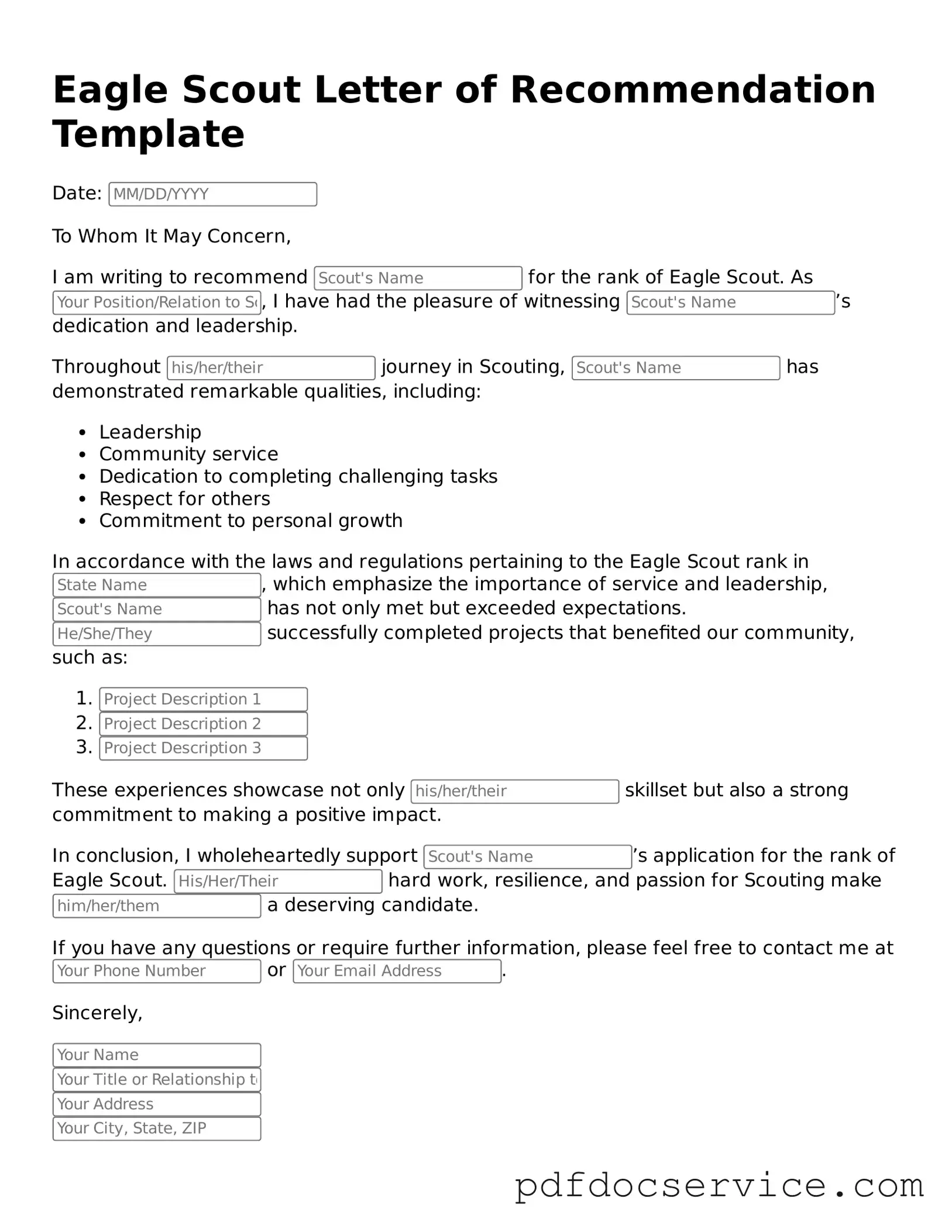The Eagle Scout Letter of Recommendation form is a document that helps provide insight into a candidate's character, leadership skills, and community involvement. It is typically filled out by individuals who know the Scout well, such as teachers, coaches, or community leaders. This letter plays a crucial role in the Eagle Scout review process.
Who should write a letter of recommendation?
Letters of recommendation should be written by people who can speak to the Scout's abilities and character. This includes:
-
Teachers or school administrators
-
Coaches or sports leaders
-
Community leaders or mentors
-
Employers or supervisors
It is important that the recommenders are familiar with the Scout's achievements and contributions.
How many letters of recommendation are needed?
Typically, a Scout needs at least five letters of recommendation. However, it is advisable to gather more than the minimum requirement to ensure a well-rounded perspective on the Scout's qualifications and character.
What should be included in the letter of recommendation?
The letter should include specific examples of the Scout's character, leadership abilities, and contributions to the community. Recommenders should address the following points:
-
How they know the Scout and the length of their relationship.
-
Specific examples of the Scout's leadership and service.
-
Personal qualities that make the Scout a good candidate for the Eagle Scout rank.
Personal anecdotes can make the letter more impactful.
While there is no strict format, the letter should be typed and printed on official letterhead if possible. It should begin with a formal greeting, followed by the body of the letter, and end with a closing statement and the recommender's signature. It is essential that the letter is clear and professional.
How do I submit the letters of recommendation?
Once the letters are completed, they should be submitted along with the Eagle Scout application. Each letter can be sealed in an envelope and signed across the seal to ensure confidentiality. The Scout should check with their local council for any specific submission guidelines.
Can I ask family members to write a letter of recommendation?
It is generally recommended to avoid asking family members to write letters of recommendation. This is because letters from individuals outside the family provide a more objective perspective on the Scout's qualifications and character.
What if a recommender is unable to write a letter?
If a potential recommender is unable to write a letter, it is best to seek another individual who can provide a strong endorsement. The Scout should approach someone who can speak positively about their character and achievements. It is important to have a diverse range of perspectives in the letters of recommendation.

